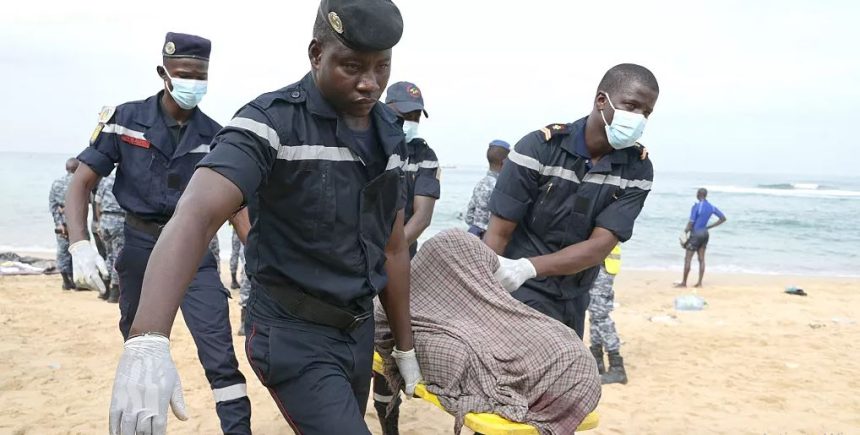Three days after a tragic shipwreck off the coast of Mbour that claimed over 125 lives, search efforts continue, though the chances of finding survivors are slim. President Bassirou Diomaye Faye visited the area on Wednesday, visibly shaken by the gravity of the situation.
“The nation mourns this unbearable tragedy,” President Faye said. “On behalf of the Senegalese people, I offer my deepest condolences to the affected families. This catastrophe, which extends beyond Mbour to other coastal areas, is the result of human trafficking networks preying on the desperation of our youth, offering them false hopes of a better life.”
Amid his condemnation of traffickers, public frustration with the government is growing. Critics argue that the administration has failed to address Senegal’s youth unemployment crisis. Moussa Diakhaté, a human rights advocate and MP, has long voiced concerns about these issues but feels ignored.
“Our youth continue to leave because the government’s promises of quick solutions have gone unfulfilled,” Diakhaté said. “Our artisanal sector has collapsed, and with few opportunities, these young people feel abandoned.”
Diakhaté also highlighted the role of some families in the crisis. “We must confront the reality that some parents, who helped finance their children’s journeys, unknowingly contributed to their tragic deaths,” he remarked.
So far, 40 bodies have been recovered, with four survivors, while around 50 remain missing. The government has pledged to crack down on human trafficking networks.
“We are determined to bring those responsible for this human tragedy to justice,” President Faye vowed. “We will not rest until these traffickers are held accountable.”
As Mbour and the nation cope with the loss of so many young lives, the country faces one of its most significant migration crises in recent years. The community reflects on the immense toll of this disaster, united in grief and demanding action.





